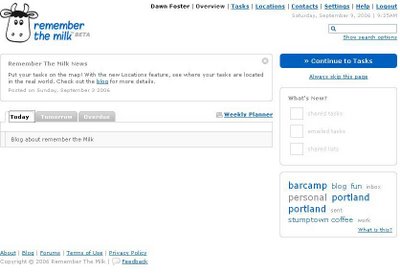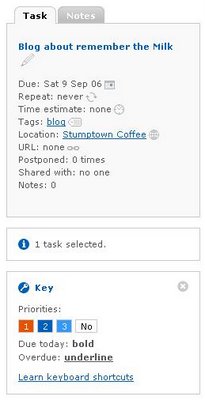The blogosphere has been in a minor uproar today over the topic of social software. Ryan Carson says that he does not have time for social software, Nick Carr thinks that social software is inefficient, and many others have responded to these ideas.
I think that Ryan and Nick are missing the point about why people use social software. It is about connecting with people in a social environment, having fun, and maybe even wasting time in a way that helps energize and refresh our workaholic, play-starved brains. Most social software is not about achieving some goal or increasing productivity. Some people may get productivity gains out of using some social networking tools, but I would argue that this is a side effect more than a purpose.
Stowe Boyd has a lovely post talking about “The Real Heart of Social Software”:
The implicit premise behind this lynch mob's logic is that social software is supposed to make users more efficient: for example, personal productivity in sales or online research. And I guess, by more efficient, the authors are focused on how time-pressed they are (several mentioned that they are too busy to use such apps, the presumption being that if these apps made them more time-efficient, they would be attractive).
I reject this mindset out of hand. And I won't get into a hand-to-hand battle about which social tools do or do not warrant our attention, since this is discussion is about the socialness of these apps, not the functional jobs that they do, really.
Social apps are not about personal productivity. They are about social involvement, learning and enlarging perspectives through connection, and -- ultimately -- about the productivity of social groups as a whole.
An example may help. I am a strong believer in instant messaging (a social tool so engrained in our world that the various authors don't mention it in their dismissive lists of social apps they *do* use, although I bet they all use it). But instant messaging is a great example of social productivity. If you accept interruptions from your buddies, asking for advice or help, while you are busily working on the quarterly budget projections or this week's cold calls, then your personal productivity will go down. So, if you want to maximize your personal productivity, you should simply ignore all interruptions. Which works fine, on a short term basis, until you ask one of those buddies for insight or advice next week, and they ignore you in return. Time is a shared space, and social apps are increasingly the mechanism we use to share it. The whole notion that we could turn away, at this juncture, from the tools we use to mediate our sharing is ludicrous. This is no fad, this is a quantum shift. You might as well wish away rock-and-roll, teenage sex, and cell phones in public places. Get over it.
There is a constant social tension between personal and network productivity. And if your primary measure of success is personal productivity, you will naturally decrease your network involvement. But its simply the wrong metric for today, and tomorrow. (Quote from Stowe Boyd at /Message)
With social software like Digg, the people submitting stories are often looking to share knowledge about topics they are passionate about or trying to gain a reputation as a leader or alpha user within the community. These are not personal productivity goals.
Another example is MySpace. Young people do not use MySpace solely as a substitute for email and IM; they use it as an online mall or coffee shop where they can connect with friends, get to know friends of friends, leave inside jokes as public comments to demonstrate that they are in someone's social circle, organize events, and more. These are not personal productivity goals; they are simply good fun.














